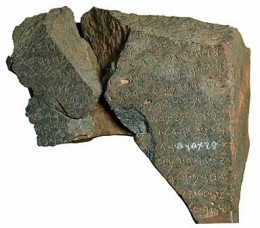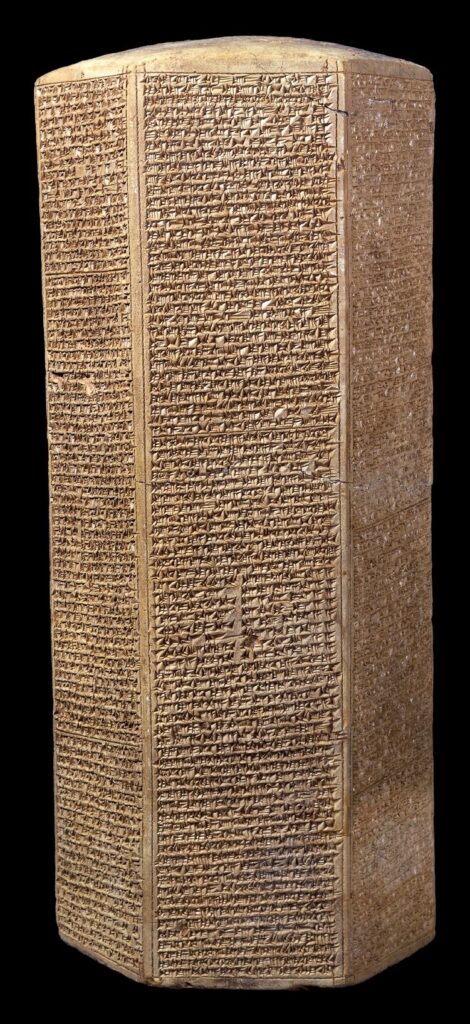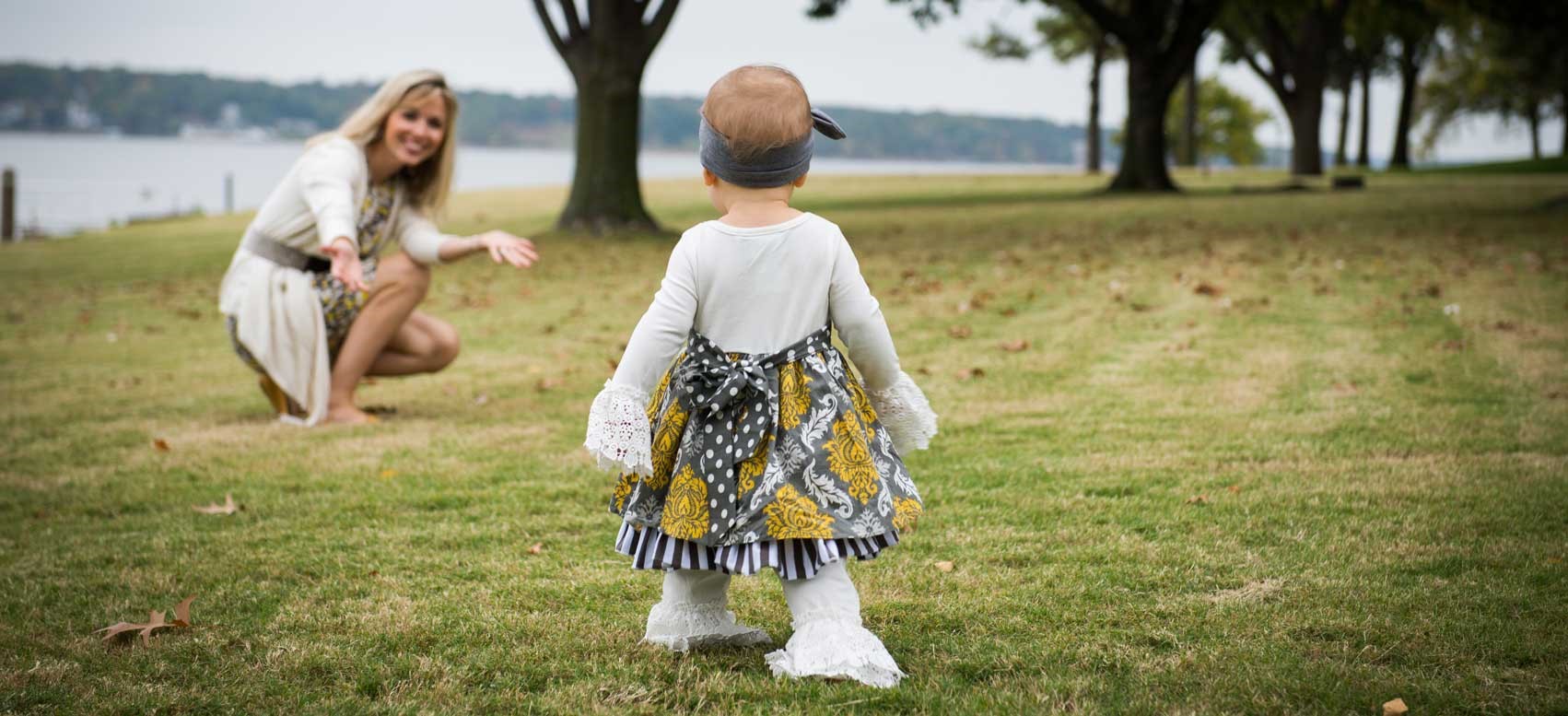Great-Grandparents: Legacy for a Thousand Generations
“Therefore know that the Lord your God, He is God, the faithful God who keeps covenant and mercy for a thousand generations with those who love Him and keep His commandments; and He repays those who hate Him to their face…”—Deuteronomy 7:9-10
The Importance of Great-Grandparents:
Few of us are blessed to know our great-grandparents and those who do sadly often do not know them for long. Still, known or unknown, our great-grandparents did leave us a legacy—an inheritance of a type.
Sometimes the inheritance we receive from them is financial: some trust, bond, land, or monies that have been passed through the generations. Yet, more often the inheritance and legacy is subtle, less visible and longer lasting…
Maybe you inherited your great-grandfather’s toes, the way they curve slightly inward?
Maybe you inherited your great-grandmother’s smile, the one that always lit up a room?
Good or bad, the genes of our great-grandparents are one thing we inherit… a silent legacy of those who came before us.
However, perhaps even more subtle can be the values, interests, and beliefs passed on. Sometimes they pass through the generations in the way each generation was raised and taught. Yet, other times, even if this fails and their values have been lost to changing times and influences, we still can unknowingly find ourselves interested in or believing the same things our great-grandparents did! As if their legacy somehow still lives through us…
Have you ever done something only to have someone who knew one of your relatives say:
- “Oh, that is just what your great-grandmother would’ve said.”
- “Your laugh is just like your great-grandpa’s.”
- “You know, your great-grandmother had a collection of Roman glass just like this? You’re so much like her.”
Suddenly you find that you are not as unique as you thought… that the way you talk and move, the way you laugh or make a joke, or even what you are interested in, is just like some distant relative that you perhaps never even met or knew anything about.
Our family line affects us more than we know—even if we never met a single family member.
Great-grandparents do more than affect our genes and actions… their legacy is a blessing; an inheritance of honor, beauty, and love…
Great-Grandparents of the Word:
Given the many genealogies provided in the Word, it is obvious that where we come from and who we are connected to is important.
The right connections before Jesus was the main way an individual could access covenant relationship with God… only because Jesus made a covenant with all who believe can we so readily be without biological or marital connections to receive the fullness of God’s promises.
Yet, even the genealogy of Jesus is laid out in the Word and much is said on leaving legacies to our children and children’s children—those who came before us are still important and a beautiful part of God’s tapestry.
“So all the generations from Abraham to David are fourteen generations, from David until the captivity in Babylon are fourteen generations, and from the captivity in Babylon until the Christ are fourteen generations.”—Matthew 1:17
Ruth and Boaz:
The book of Ruth focuses on the story of one of the most famous women of the Word, Ruth.
While her story of finding God, family, and redemption is a powerful one, her legacy only begins there. The final chapter of Ruth ends with the genealogy of those to come… yet, it is the great-grandson of Ruth and Boaz that first cements their legacy.
“…Boaz begot Obed; Obed begot Jesse, and Jesse begot David.” —Ruth 4:21-22

(Source: Israel Museum, Jerusalem/Israel Antiquities Authority; Photo: by Meidad Suchowolski. The fragmentary Tel Dan stele references the ‘king of the House of David,’ giving archaeology evidence of King David.)
The famous great-grandchild and keeper of the line of Jesus was none other than David, the first King of Israel chosen solely at God’s behest, not mans…
Being in the genealogy of an earthly king is impressive in itself, yet, Ruth’s legacy did not stop there. The King of kings was placed by God within the womb of Mary, a descendant of David, putting Jesus in the lineage of Ruth and Boaz! What a wonderful legacy!
Ruth being the great-grandmother of David, the king of Israel, laid the groundwork of so much that was to come…
Her faith in God, her willingness to give up her home and family in Moab to follow her widowed mother-in-law to an uncertain future, her acceptance of her kinsman redeemer… these all produced blessings on her and those in her line. Her behavior and that of her husband Boaz, set the standard for all those to come behind them. So, while David likely never met them, their legacy lived on in him and of course, in Jesus, the King of kings—the ultimate Redeemer!
Noah:
Noah is related to everyone on earth, for after the flood only he and his family survived. Yet, one great-grandson in particular would become a mighty man—a living legacy of Noah—who would build the city from which much of the Kingdom of Israel’s troubles would emerge…
Nimrod was the great-grandson of Noah, a mighty hunter who held a kingdom and built—among a great many others—the city of Nineveh that would one day become the Assyrian capital, a city from which to strike God’s people and take them captive.
Interestingly however, despite our knowing so much about Nimrod’s strength and ability to create, we still know remarkably little about Nimrod personally…

(Source: British Museum. Sennacherib or Taylor Prism from Nineveh recounting having the King of Judah—Hezekiah—trapped like ‘a bird in a cage.’ He omits his success or failure to capture Jerusalem after laying it siege.)
In fact, not only do we know relatively little about Nimrod, scholars are torn in their opinions of him—particularly his relationship with God…
“Cush begot Nimrod; he began to be a mighty one on the earth. He was a mighty hunter before the Lord; therefore it is said, ‘Like Nimrod the mighty hunter before the Lord.’ And the beginning of his kingdom was Babel, Erech, Accad, and Calneh, in the land of Shinar. From that land he went to Assyria and built Nineveh, Rehoboth Ir, Calah, and Resen between Nineveh and Calah (that is the principal city).” —Genesis 10:8-12 (emphasis added)
While we might consider a man who created the city of Nineveh to be a mighty man of God, particularly given the biblical texts, Nimrod’s character is in question among many Bible scholars and extra-biblical texts. Genesis 10:9 states that Nimrod was ‘a mighty one on earth’ and, ‘a mighty hunter before the Lord,’ yet, some biblical commentaries translate ‘mighty hunter before the Lord’ as ‘mighty hunter against the Lord,’ which if true, greatly alters our perception of Nimrod! Additionally, the famous historian, Josephus, wrote of Nimrod being in fact the opposite of a follower of God, instead laying blame for turning away from the Lord at his feet…
The historian, Josephus, wrote: “…it was Nimrod who excited them to such an affront and contempt of God. He was the grandson of Ham, the son of Noah, a bold man, and of great strength of hand… He also gradually changed the government into tyranny, seeing no other way of turning men from the fear of God, but to bring them into a constant dependence on his power…”i
Only God knows the heart of a man, particularly one so long gone, yet, whether Nimrod followed after God as his great-grandfather Noah had, or chose to put his face against God, we see the godly effects of Noah’s legacy made plain in Nimrod’s life—in his ability to lead, build, and create.
Yet, while the legacy of Noah did continue in Nimrod, it perhaps continued more extensively in the line of Shem… for Nimrod was the son of Cush, who was the son of Ham, the son of Noah, and therefore Nimrod was not in the lineage of Jesus. That privilege went to Salah, son of Arphaxad, son of Shem, Noah’s eldest son, from whom Abraham and all the Israelites to come would descend… so, no matter how great the legacy of Nimrod, Salah’s legacy of being in the lineage of the King of kings is impossible to ignore—a beautiful legacy of God for Noah and his great-grandson, Salah…
“…the sons of Noah: Shem, Ham, and Japheth… children were born also to Shem, the father of all… Eber, the brother of Japheth the elder. The sons of Shem were Elam, Asshur, Arphaxad, Lud, and Aram… Arphaxad begot Salah…”—Genesis 10:1, 21-22, 24
Abraham and Sarah:
We all probably know the children’s song, ‘Father Abraham,’ and indeed, Abraham did have many sons. Through Abraham a great many people have their physical being—specifically the Jewish people. Yet, even many of the Muslim communities owe their lives to him, for Abraham’s wife, Sarah, gave him Hagar, her maidservant, so that she might have children through her… and Hagar bore Ishmael, the child from whom the Arab world would come.
So, while Abraham’s legacy truly resides in being the great-grandfather of the twelve tribes of Israel—the blessing of His faithfulness to God—his legacy also lies in Ishmael, whom Abraham sent away with Hagar at Sarah’s and God’s behest. Yet, God was merciful, giving Ishmael an inheritance so that Ishmael’s descendants might be a great people…
“Then the angel of God called… ‘What ails you, Hagar? Fear not, for God has heard the voice of the lad… Arise, lift up the lad and hold him with your hand, for I will make him a great nation.’”—Genesis 21:17-18
Abraham was a friend of God, blessed all his days, and that blessing was fully passed to his and Sarah’s great-grandchildren whose descendants would be given the Promised Land in addition to the Abrahamic covenant of God.
Abraham’s great-grandchildren were the start of a legacy and an inheritance that would span beyond them to King David, then to the King of kings, our Savior—even to modern Israel. For Abraham begot Isaac, who begot Jacob, who begot twelve sons who became twelve tribes… and from the tribe of Judah would come King David and our King of kings, Yeshua, Jesus.
“Now the sons of Jacob were twelve: the sons of Leah were Reuben, Jacob’s firstborn, and Simeon, Levi, Judah, Issachar, and Zebulun; the sons of Rachel were Joseph and Benjamin; the sons of Bilhah, Rachel’s maidservant, were Dan and Naphtali; and the sons of Zilpah, Leah’s maidservant, were Gad and Asher…”—Genesis 35:22-26
What Can We Learn from This?
As we are to honor our father and mother, we honor those who came before by recognizing that without them we would not be…
Yet, by looking at the past we remember that we are to look ahead. That we too must leave a legacy!
At Curt Landry Ministries we are, with people like you, leaving a godly legacy for our children and children’s children—while also blessing the land and people of Israel for generations to come! By becoming a Covenant Partner with us, giving a small monthly gift, you allow us to plan ahead and further the legacy passed down… a legacy of life, love, and hope!
Not only does your partnership leave a legacy for your family through the support of God’s beloved, but you receive the benefits of being in covenant with Curt Landry Ministries! From our special Facebook page specifically meant for our Covenant Partners, to special gifts sent to you as your covenant relationship grows, you are blessed both going in and coming out…
Let us join together and leave a legacy of life, love, and hope, answering God’s call and His Word!
“And the King will answer and say to them, ‘Assuredly, I say to you, inasmuch as you did it to one of the least of these My brethren, you did it to Me.’”—Matthew 25:40
“A good man leaves an inheritance to his children’s children…”—Proverbs 13:22
___________________________________
i https://en.wikipedia.org/wiki/Nimrod


